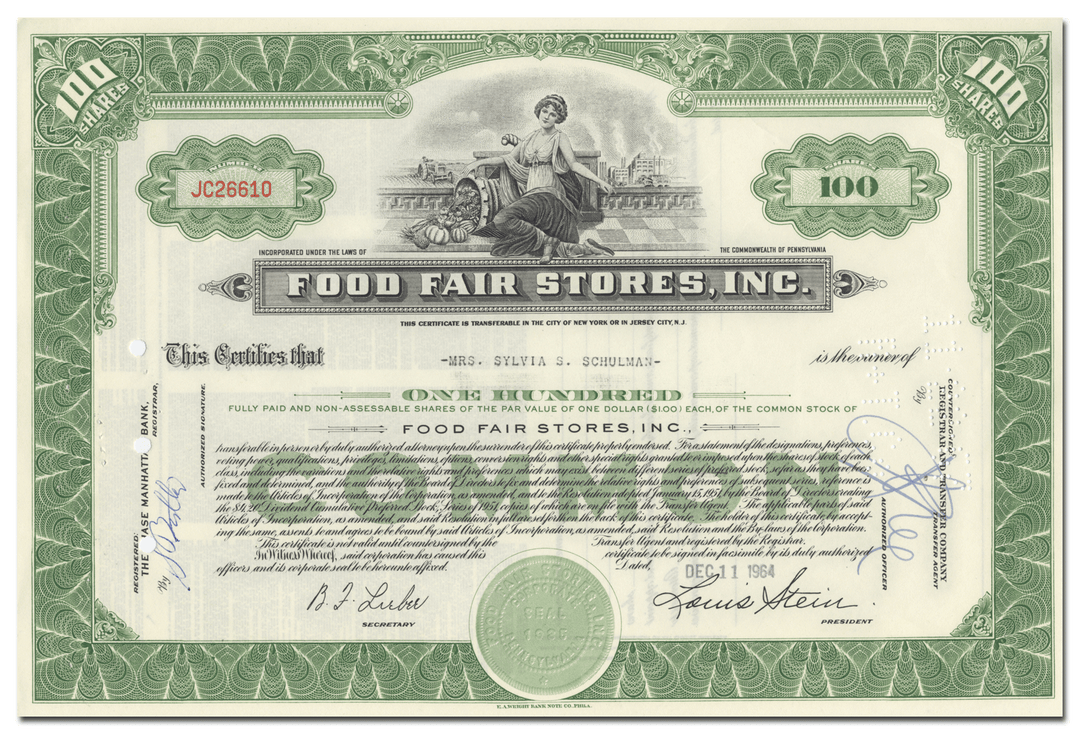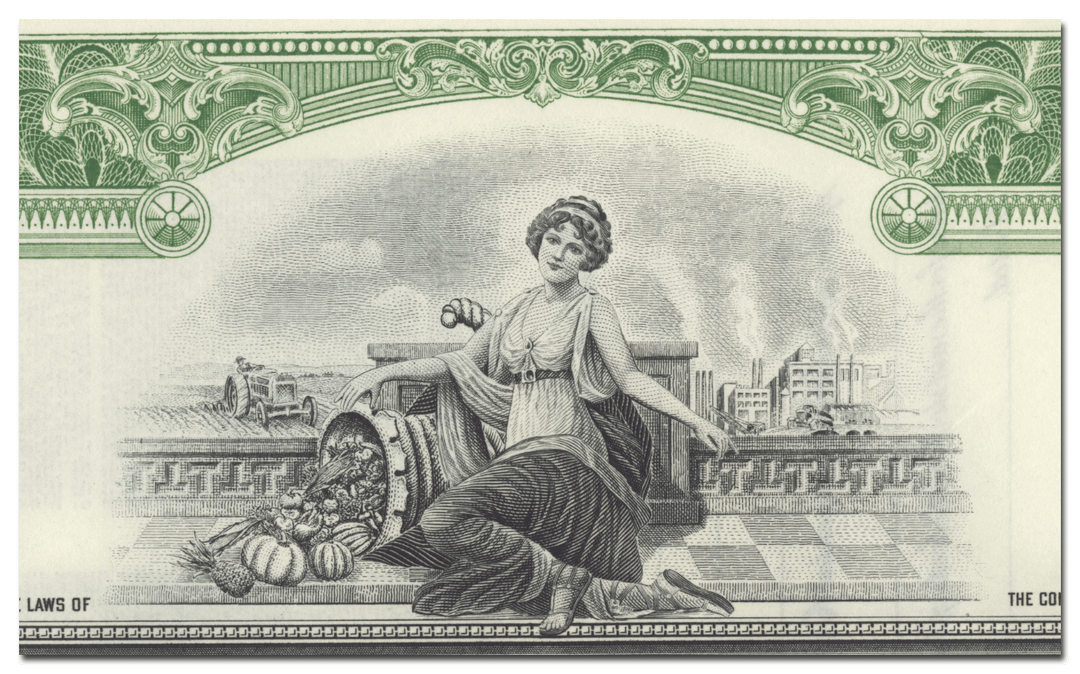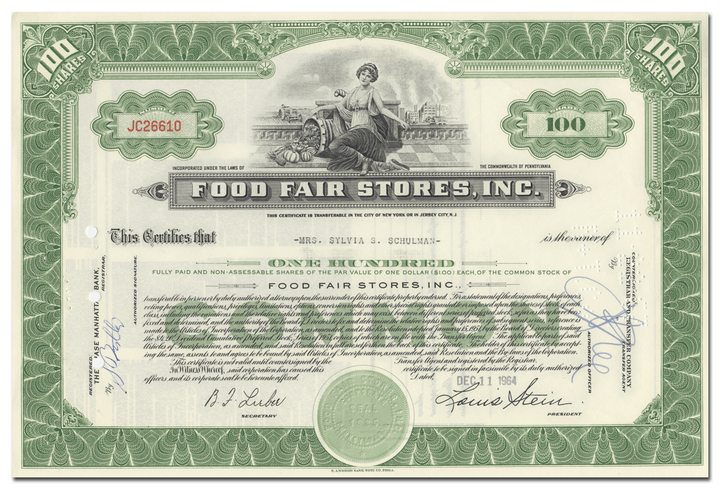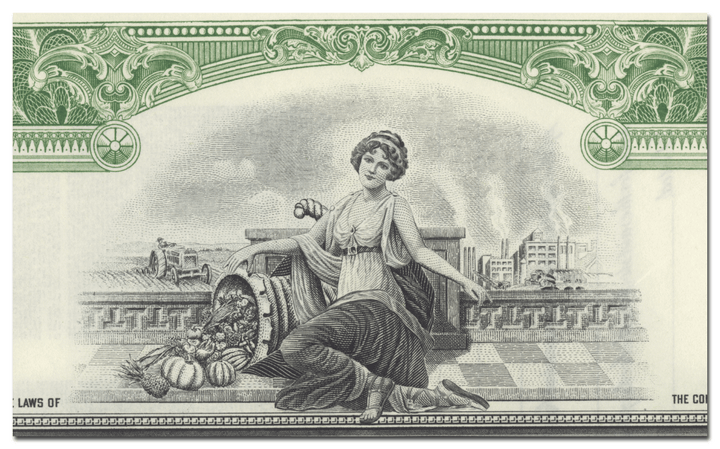Food Fair Stores, Inc.
- Guaranteed authentic document
- Orders over $100 ship FREE to U. S. addresses
Product Details
CompanyFood Fair Stores, Inc.
Certificate Type
Common Stock
Date Issued
1960's
Canceled
Yes
Printer
E. A. Wright Bank Note Company
Signatures
Machine printed
Approximate Size
12" (w) x 8" (h)
Images
Representative of the piece you will receive
Guaranteed Authentic
Yes
Additional Details
NA
Historical Context
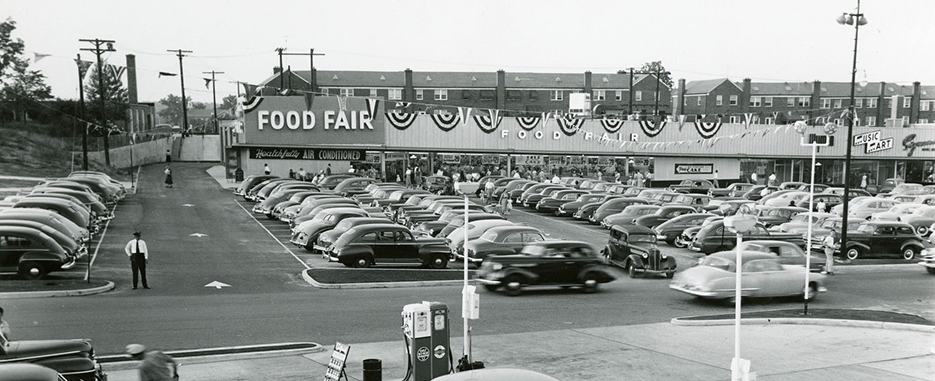
Samuel Friedland opened his first "Reading Giant Quality Price Cutter" supermarket in the 1920s. The success of the first store led to the opening of more stores. In the late 1940s came the introduction of the name Food Fair.
In 1958, Food Fair purchased Setzer's Supermarkets, a 40-store chain in the Jacksonville, Florida area. In 1961, Food Fair bought J.M. Fields Department Stores, a chain of discount department stores in New England. The latter chain grew substantially, expanding to areas already served by Food Fair, particularly in Florida. By the 1960s, most J.M. Fields stores featured a J.M. Fields, Food Fair, or Pantry Pride grocery store.
During the 1960s, Food Fair enjoyed great success, but the most significant purchase for the company was that of a small Philadelphia chain called Best Markets. Best's private label brand was called Pantry Pride. When Best Markets launched a chain of no-frills discount grocery stores in mid-decade, it used the name Pantry Pride. The stores that were under the "Pantry Pride" logo eventually became more popular than the "Food Fair" brand. By 1970, Food Fair had converted most of its stores to the Pantry Pride banner, and the company popularity grew further.
In the late 1960s, the company, led by its Pantry Pride stores, continued to grow. The company also opened additional J.M. Fields stores and entered new businesses, launching drug stores, gasoline stations, and shoe stores. It also boosted its core business by entering California and Nevada through the purchase of the Fox Markets chain. The western expansion proved exhausting for the predominantly East Coast retailer, eventually divesting the 50 stores by 1972. In 1976, Pantry Pride acquired Hills Supermarkets of New York. Later that year, Pantry Pride purchased the remaining 17 stores of Philadelphia-based Penn Fruit Company.
In 1978, Food Fair fell victim to financial problems. The company entered bankruptcy that year and a new management team, led by supermarket veteran Grant Gentry, began streamlining the 456-store, $2.7 billion company. By the end of 1978 the company took the first steps in the long journey out of bankruptcy by closing all of the JM Fields stores. Those stores were quickly purchased by Caldor, Jefferson Ward, and Kmart. In early 1979, the company left their home market of Philadelphia, where the firm was headquartered. The company closed more than 50 stores in the area, even though they were the second-largest chain in greater Philadelphia in terms of market share. Between 1979 and 1981 more than 200 stores were closed, along with several warehouses. Food-a-Rama bought 14 of the 48 Baltimore-area stores in 1981. By this time Food Fair had emerged from bankruptcy, and was based in Fort Lauderdale, Florida under the name Pantry Pride Stores, Inc. The company had entered into talks to be purchased by Pathmark Stores that same year, but discussions were abandoned when Pantry Pride's stockholders filed a complaint. Pantry Pride outsourced their wholesale operations to Supervalu when they sold their Miami and Jacksonville distribution centers. The company then began selling off huge chunks of their assets when they sold two-thirds of their remaining stores, including the last of their Richmond, Virginia stores to A&P, which continued to operate the stores under the Pantry Pride banner until 1986. Only about 40 stores in southern Florida remained.
In 1984 Pantry Pride acquired Devon Stores, a home improvement store, and the 400-store Adams Drug Company, which operated in the northeastern United States. The owner of Devon Stores, who obtained about 10.4% of the merged company, then sought an ouster of the Pantry Pride Board of Directors. In 1985, using junk bonds, 38% of Pantry Pride was acquired by investor Ronald Perelman. This was enough to acquire control, and Perelman liquidated their assets but kept the losses on the books to offset profits from MacAndrews and Forbes, which he had previously acquired. Perelman used Pantry Pride as a vehicle to acquire other companies, in particular Revlon. By 1986, the name of Pantry Pride was changed to Revlon Group.
In 1985, the last stores in southern Florida were sold to Red Apple Group, a New York supermarket chain owned by John Catsimatidis. By 1990, the chain was being supplied by the Fleming Companies. The last store opened in 1991 in Sunny Isles, Florida. By this time, nearly all of the stores were renamed Woolley's, after Bill Woolley acquired the latter named chain of seven stores in the late 1980s. In 1993, Fleming bought the Woolley's chain after a dispute with Catsimatidis. The remaining stores were either closed or sold by 2000.
Related Collections
Additional Information
Certificates carry no value on any of today's financial indexes and no transfer of ownership is implied. All items offered are collectible in nature only. So, you can frame them, but you can't cash them in!
All of our pieces are original - we do not sell reproductions. If you ever find out that one of our pieces is not authentic, you may return it for a full refund of the purchase price and any associated shipping charges.





